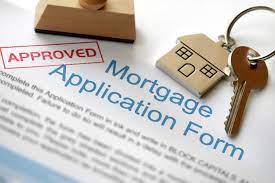How To Get A Mortgage In Spain In 2022
Mortgages, or house loans, are the most common financial or banking instrument that savers use to invest their money. For many individuals, getting a mortgage loan to pay for a house is still a top priority, and it is possible to do so.
What a mortgage is, what kinds of mortgages are available, and how to apply for one are all explained by our mortgage experts.
If you're thinking about how to get a mortgage in Spain in 2022, take the time to go through the information provided here so you can make an informed decision. If you want to make an educated choice, we recommend that you spend some time researching about mortgages and how they operate.
In Spain, There Are Several Different Types Of Mortgages
Mortgages for expats in Spain are available from both international and Spanish banks, as well as normal mortgages. The purchase price and nationality limits of many Spanish mortgages are not enforced, however certain packages are tailored to particular nationalities or areas of the country. However, what are the most prevalent forms of mortgages out there?
Mortgages For Non-Residents
The most important differential between residential and non-residential loans is the maximum loan-to-value (LTV) that banks will allow. Residents may borrow up to 80 percent of the property's assessed value, however non-residents are often restricted to 60–70 percent LTV. The good news is that you may be able to borrow up to 100% of the property's value when acquiring a bank-owned repossessed house in Spain. There are certain banks that exclusively give mortgages to foreign purchasers who are interested in their own property listings.
In this case, your options for a mortgage may be heavily dependent on a certain property. Depending on the bank's assessment of the property, you may be able to get a mortgage based on the price you're paying for it. Mortgages are available even if you purchased your home for €100,000, and an appraiser evaluated it at €125,000.
Spanish Retiree Mortgages
There is a mortgage option for retirees over 60 who are receiving pensions in Spain. When applying for a retiree mortgage, you may provide a guarantor, such as a family member. Tax advantages may be available if the guarantor is also a part owner of the property.
Commercial Mortgages
Consider acquiring a restaurant or a store in Spain as a business start-up option. In this circumstance, a business mortgage might be used to support your venture. Unlike personal loans, corporate loans have more stringent restrictions. In this case, the bank or lenders would ask for all the required paperwork for the company you want to run.
Your business ideas and financial papers from any past companies will be required, as well as confirmation of your previous experience. Commercial loans may be used to finance up to 50 percent of the acquisition price or value of the firm you are interested in purchasing.
Mortgages For Construction
If you wish to build your own house, you may apply for a construction loan in Spain. The amount of money you may borrow for a construction project is highly dependent on your financial status. For the most part, you'll be able to cover 60% to 70% of the entire land and building costs. Since there is a greater risk of the project not being completed, a construction loan will charge more interest.
A Non-Spanish Resident's Mortgage
Spanish real estate is becoming more popular with international buyers. The Spanish Property Registry reports that almost 61,000 residences were acquired by non-Spaniards last year, making up 13% of total transactions. 7 percent of mortgages granted in Spain for the purchase of real estate were signed by foreign individuals.
A non-resident mortgage is a loan issued by a financial institution to foreign nationals or citizens who have not spent more than 183 days in the country throughout the calendar year, or who do not have Spain as their major focus.
Summary
It is more difficult for non-residents to comply with the purchase of products connected to their mortgage, such as direct deposit of their wage, thus the interest rates on their loans are greater than for residents. The borrower will know precisely how much he has to pay back at all times with a fixed-rate mortgage for non-residents, so he can feel secure about renting the property.
